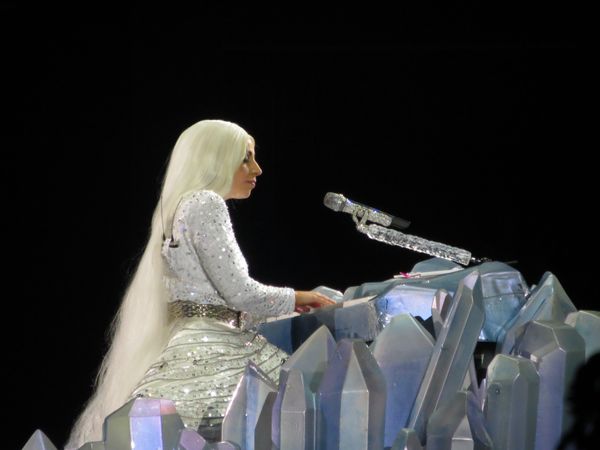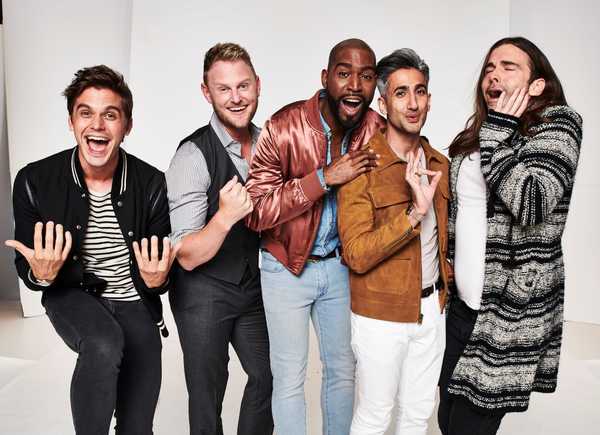I love Harry Potter. It has been one of the most personally influential book series that I have ever read, and it is the best selling book series of all time. That said, it has also been the source of some intense controversy and debate, not only about the characters and the story itself but also in regards to the representation (or lack thereof) that it offers to its audience. Within the books series itself, there are only seven characters explicitly said to be people of color, none of whom are the main characters. Considering that 28% of Great Britain's population is made up of non-white people, this is a massive discrepancy between fact and representation.
There are no characters who are stated within the confines of the books to be anything other than heterosexual, and religious diversity is not mentioned anywhere in the series. If we as an audience are lenient, we could argue that, because J.K.Rowling also never said the characters weren't cis heterosexual or weren't Jewish or Muslim or Hindu, then we can conclude that these demographics did exist. Indeed, much of the fanbase has argued that because the character Harry Potter was fairly oblivious to many things and the story was written from his perspective, it is possible that there was massive diversity within the wizarding community that he was simply unaware of or did not take special notice of. This, however, is quite a stretch and allows for quite a bit of leeway.
Since the books were released, Rowling herself has been very vocal and very available regarding questions about her series. This has, however, brought to light the question of whether the author's intentions should be taken into consideration when interpreting a piece of writing. According to Roland Barthes, the answer is no. Barthes' concept - the refusal to acknowledge the author's intentions and influences in favor of considering only the readers' interpretations - is known as the "Death of the Author". If we analyze the Wizarding World of Harry Potter from the criterial standpoint of Barthes' "Death of the Author", Harry Potter is extremely heteronormative, extremely white, and overall extremely narrow in its overarching levels of representation. As previously stated, of all the hundreds of characters in the series, only seven were not white. None of the characters were ever explicitly stated as being anything other than heterosexual; even Albus Dumbledore, who is now well known to cannonly be gay, never had any mention of his sexuality within the books themselves. All aspects of representation, from race to religion to gender to sexuality, that could be desired are minimally touched on if they are addressed at all.
If, however, we pay attention to the interviews, twitter posts, and reactions to fan letters that Rowling has given over the years, we find that Dumbledore was gay, Hermione was possibly black, and there was even ONE Jewish student at Hogwarts named Anthony Goldstein. These revelations led to Harry Potter being featured in LGBTQ and Jewish news sites the weeks of these announcements, and Rowling herself being hailed as a socially aware leader in progressive authorship. The issue, however, is that Rowling never included any of this representation in her books. She never wrote it down, she never made it clear within the canon. She only ever made these statements years after she had gained fame, influence, and momentum.
So the question is this: How do our interpretations of the Harry Potter series change when we take Rowling at her word that she intended to include representation and give her Wizarding World an extensive demographic, compared to when we instead go by what she actually wrote down?
I would have no problem with Rowling if she had admitted her mistakes. I would have no problem if she ever apologized, or ever once said, "I didn't write it like that, and I am sorry that I didn't." If Rowling, instead of making excuses and saying things like, "Oh, but that isn't what I meant," or "I didn't specify so that you could interpret it the way you want," but had rather said, "I wasn't considerate of minorities and the representation that they needed when I wrote this, but I hope that everyone can still find some connection here," "Please feel free to find whatever you need to find from these characters," "I am so sorry, I will try to do better," if she had actually made efforts to improve her representation of her audience, then things would be different.
But instead, Rowling has made excuses as to why the obvious lack of representation and diversity is actually okay. Instead, she has retroactively made additions or changed the canon to fit the new demands of her audience and consumers, while never actually making the changes in the additions to her books. Instead, she has claimed that she really does write for all people, while almost never writing any characters who are not straight and white.
In her poem, "To J.K.Rowling, From Cho Chang" the young Korean-American Author Rachel Rostad calls Rowling out for many of the shortcomings in the series regarding race; the very poignant lines about the name Cho Chang strike a resonant chord in the hearts of readers, stating, "They are both Korean last names. I am supposed to be Chinese,". In his study of racial representation within pop culture, titled "Every Single Word", Dylan Marron cuts and edits movies to show how much of the movies consist of dialogue from people of color. In this study, Dylan Marron revealed to the world that the video for Harry Potter is only five minutes and forty seconds long, out of the two thousand, one hundred and seven minutes of film time that makes up the entire series.
There haven't been any similar studies on the representation of sexualities in the Harry Potter universe, because there is nothing to study; the only character revealed to be anything other than straight was Albus Dumbledore, and it's never shown in either the books or the movies. Our potential gay icon is, in fact, closeted even in fiction.
According to J.K.Rowling, there is plenty of diversity in the Wizard World, as much as there is in real life. According to research, and according to Barthes' theory of "Death of the Author", the world of Harry Potter, which teaches young children so much about the power of love, friendship, kindness, and the strength of the underdog, is one of the least diverse worlds in modern media.


 Sophia 🐥 @peaceofseoul
Sophia 🐥 @peaceofseoul
















